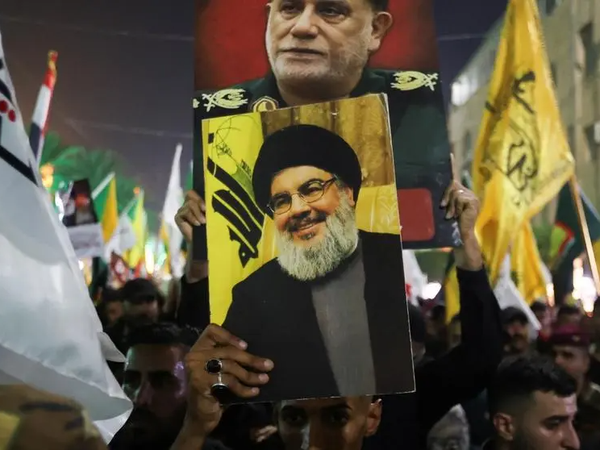One of Iraq's few independent newspapers has warned that the country may share Syria's fate of prolonged conflict and upheaval if the government fails to distance itself from the Islamic Republic and undertake urgent reforms.
This news analysis comes after Bashar al-Assad in Syria lost his grip on power after support from Iran and its ally Hezbollah were sapped by over a year of conflict with Israel.
Prime Minister Mohammed Shia' al-Sudani, whose tenure is supported in part by Iran-backed armed groups, may now face pressure to prioritize Iraq’s sovereignty over foreign influence according to the daily.
"Iraq remains internally divided over the repercussions of the situation in Syria, with some still supporting intervention at this point. Factions and some actors in the Shiite political scene align with this view, consistent with Tehran’s stance, which has announced the continuation of resistance," wrote Al-Mada.
The Committee to Protect Journalists has said Al-Mada "is seen as one of the only remaining critical newspapers in Iraq".
Operating under the umbrella of the Popular Mobilization Forces (PMF) and supported by the Islamic Revolutionary Guard Corps (IRGC), these groups wield considerable power over Iraq’s governance, military operations, and energy infrastructure.
Despite their original mandate to combat ISIS, many of the militias have since expanded their activities, frequently targeting US forces and installations in Iraq with rockets and drones, and exacerbating tensions between Tehran and Washington.
The paper also highlighted fears of broader regional destabilization following the fall of Bashar al-Assad in Syria, a key ally of Iran.
"Political forces have started warning about scenarios similar to Syria’s situation if rapid internal reforms are not implemented," wrote Al-Mada, citing thinktanks advising Iraqi government to distance itself from the poor governance of the Shiite political forces that have held power since 2003.
Tehran’s armed affiliates in Iraq may be weakened by the developments in Syria. The Australian Arab Institute for Strategic Affairs recently warned that Baghdad faces a critical juncture: either curb the influence of Iran-backed militias or risk becoming a target for escalating Israeli and US military operations.
Adding to the uncertainty are concerns about the potential reactivation of ISIS sleeper cells given the security vacuum next door.
“Iraq is trying to maintain a somewhat balanced relationship with Washington and not align itself entirely with Tehran,” Rahim al-Aboudi, a senior official in the National Wisdom Movement, was quoted as saying.
Growing public discontent
Domestically, public anger toward Iran’s proxies has intensified in recent years, particularly after their violent suppression of 2019 anti-government protests which criticized Iranian influence.
Social media has amplified these frustrations, with posts encouraging attacks on the Iranian embassy and measures to end the activities of armed groups backed by Tehran.
“Numerous individuals or fake accounts have called for citizens to arm themselves in opposition to Iran-backed forces,” Truske Sadeghi, a former Iran International correspondent posted on X.
The warnings of instability echo fears of a repeat of Iraq’s tumultuous recent past.
Unlike the ISIS incursions of 2014 which originated from Syria, analysts warn that any future unrest could arise from within Iraq’s cities, fueled by the same grievances that sparked the 2019 protests but on a potentially larger scale.
While Baghdad has reiterated that its borders are secure, the government’s inability to effectively manage the influence of IRGC-backed militias has left the country vulnerable to both domestic upheaval and regional spillovers.
As Iraq navigates mounting international and domestic pressures, its leadership could face a critical choice: assert greater control over Tehran-backed forces or risk a deeper descent into instability.
